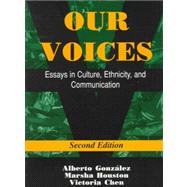| Acknowledgments | viii | (1) | |||
| Foreword | ix | (1) | |||
|
|||||
| Introduction | x | ||||
|
|||||
|
|||||
|
|||||
| Part I: Naming Ourselves | 3 | (32) | |||
|
3 | (11) | |||
|
|||||
|
14 | (7) | |||
|
|||||
|
21 | (7) | |||
|
|||||
|
28 | (7) | |||
|
|||||
| Part II: Negotiating Sexuality and Gender | 35 | (35) | |||
|
35 | (6) | |||
|
|||||
|
41 | (5) | |||
|
|||||
|
|||||
|
46 | (6) | |||
|
|||||
|
52 | (9) | |||
|
|||||
|
61 | (9) | |||
|
|||||
| Part III: Representing Cultural Knowledge in Interpersonal and Mass Media Contexts | 70 | (51) | |||
|
70 | (14) | |||
|
|||||
|
84 | (10) | |||
|
|||||
|
94 | (5) | |||
|
|||||
|
99 | (6) | |||
|
|||||
|
105 | (8) | |||
|
|||||
|
113 | (8) | |||
|
|||||
| Part IV: Celebrating Cultures | 121 | (22) | |||
|
121 | (4) | |||
|
|||||
|
125 | (4) | |||
|
|||||
|
129 | (7) | |||
|
|||||
|
136 | (7) | |||
|
|||||
| Part V: Living in Bicultural Relationships | 143 | (34) | |||
|
143 | (6) | |||
|
|||||
|
149 | (8) | |||
|
|||||
|
157 | (6) | |||
|
|||||
|
163 | (14) | |||
|
|||||
| Part VI: Traversing Cultural Paths | 177 | (36) | |||
|
177 | (10) | |||
|
|||||
|
187 | (8) | |||
|
|||||
|
195 | (8) | |||
|
|||||
|
203 | (10) | |||
|
|||||
| Appendices | |||||
| Suggested Questions for Discussion | 213 | (2) | |||
| Supplementary Readings | 215 | (5) | |||
| About the Contributors | 220 |








